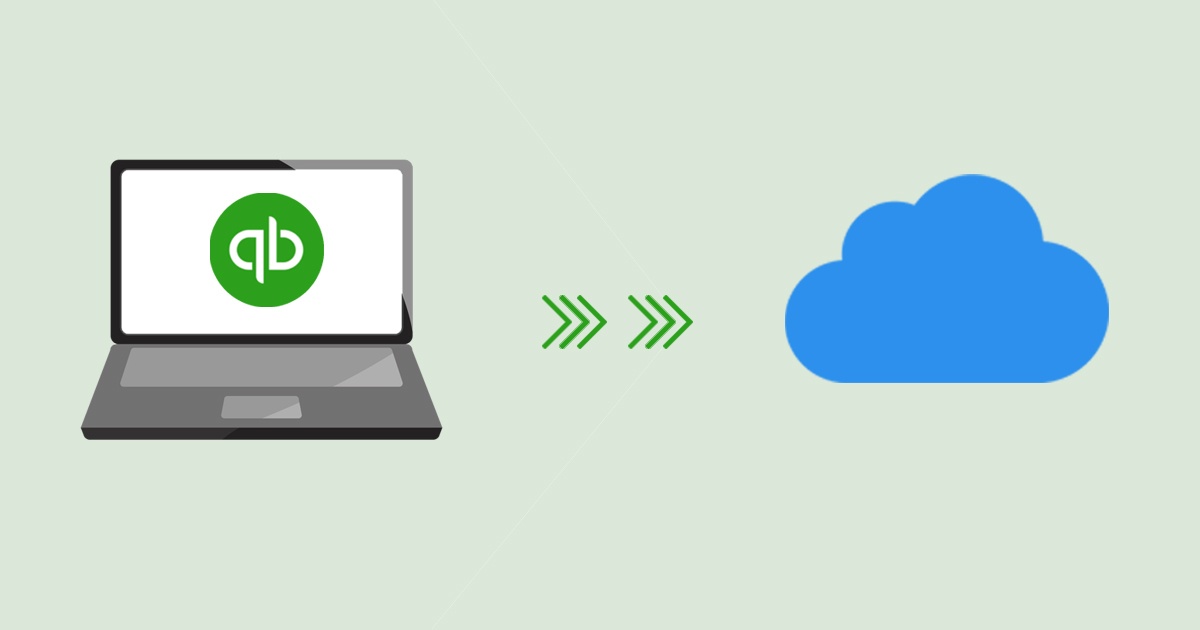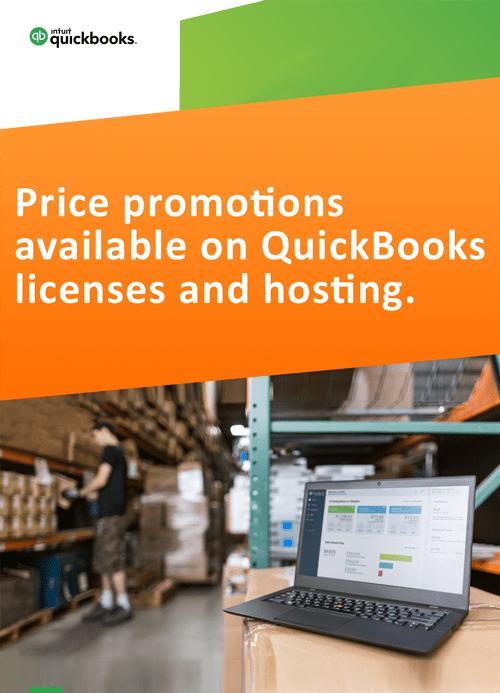

7 Factors to Consider Before Getting QuickBooks in the Cloud
If you have finally made up your mind to move your QuickBooks accounting software to the cloud, you have made a good choice. This decision will be of immense benefit to your business as QuickBooks in the cloud. This not only offers you 24/7 access to your files and information, but also provides several other benefits like automated regular cloud backups, enhanced security, prompt vendor support related to IT, compatibility across all devices and platforms, and much more.
But wait! There are a few things you must know before you move your data to QuickBooks in the cloud. Well, you don’t want to take any chances with QuickBooks cloud hosting. Here are seven things you should a take note of:
1. Be Secure of Your QuickBooks Requirements
Technically, moving your QuickBooks to the cloud could mean one of the two scenarios: you purchase a QuickBooks Online subscription, or you move your QuickBooks to the cloud with the help of a hosting solutions partner (referred to as a cloud-hosted QuickBooks or simply hosted QuickBooks). Bear in mind that the features of QuickBooks Online are much different from that of any version of hosted QuickBooks; the latter offers you the same desktop-client experience while the former is a trimmed down version of the application which does not include inventory tracking options or advanced invoicing functionality.
Additionally, QuickBooks Online is a standalone product altogether while hosted QuickBooks service can be availed for multiple editions of the product such as QuickBooks Pro, QuickBooks Premier, QuickBooks Enterprise, and QuickBooks Accountant. Compare the features offered by various editions of the accounting application and decide for yourself which one suits you the best. QuickBooks Online lacks the full functionalities of the QuickBooks Desktop version, but the problem can be solved with using hosted QuickBooks on a cloud desktop.
2. Communicate Your Needs Concisely
If you choose to opt for hosted QuickBooks, you must explain your business requirements to your cloud solutions provider clearly. Why do you actually need virtual desktops? Which version or edition of QuickBooks are you looking to use? Is it QuickBooks Pro or Premier or Enterprise? QuickBooks 2020 vs 2019? How many users are you looking to purchase the subscriptions for? How many users do you think will you be adding in the next 12 months? Inform your QuickBooks cloud vendor regarding all such details well in advance.
Ensure that the hosting services provider can meet your company’s requirements before you enter into any agreement with them. This way, you will also receive a much more accurate price quotation from them which may help you decide better. It is generally better to purchase QuickBooks licenses and cloud hosting from the same vendor (like Apps4Rent), because it may avoid hassle of separate invoices.
3. Understand How the Cloud Works
When you move your QuickBooks to the cloud, your user experience will not change (unless you moved to QuickBooks Online which doesn’t offer you the desktop look-and-feel features of a hosted QuickBooks). However, there is no harm in understanding how cloud technology works. You might even discover newer ways by which your business can benefit from cloud-based services and applications.
Once your understanding of the cloud technology improves, there are limitless possibilities with the cloud. Additionally, understanding how cloud-based services and applications work will save you from falling into traps set by cloud solutions providers that trick you into spending more money than needed. Cloud hosting not just provides anytime access from any device, but provides a number of benefits like backups, firewalls, disaster recovery, flexibility-of-use, and more.
4. Keep Your Users Updated About QuickBooks Cloud
Ultimately, your users are going to be the ones to access and use the QuickBooks accounting application every day. So, when you are moving QuickBooks to the cloud, make sure that you keep your employees updated regarding the latest events of the matter. Encourage your users to ask questions and clear their queries to avoid any unnecessary confusion. If you have users who request training before accessing QuickBooks cloud desktops, ensure that they receive it. When users are trained during any migration, they are more likely to be confident about working with the new application once the migration process successfully completes.
5. Revisit Your IT Infrastructure
Since you will be moving your QuickBooks account to the cloud, your internet connectivity is of vital importance. Remember that cloud-based services and technologies are completely dependent on your internet connectivity. If you have a steady and reliable internet connection from a trusted service provider, you are good to go. However, if you have frequently suffered connectivity issues like slow and unsteady connection or poor uptime from your internet service provider, consider switching to a better ISP before you initiate the QuickBooks migration process. Ensure that your office maintains a backup power source (such as a generator) to ensure that you are always connected to the internet. You may also consider getting a secondary data package from a different ISP that could be used during emergencies when the primary internet connectivity is unreliable or unavailable.
6. Prepare for the Challenges Beforehand
No cloud migration comes without problems and challenges. Why would the QuickBooks migration be any different? Consult your QB cloud solutions provider beforehand and list down the possible challenges that you can anticipate once your QuickBooks company files has been moved. Be prepared to address those challenges as they appear. Better yet, ask multiple QuickBooks cloud hosting providers about the possible challenges your company might face and how they can help you address them. Plan ahead of time to decide issues like the possible app integrations you might need with QuickBooks, how you plan to assign privileges to users, and so on.
7. Research Your QB Hosting Provider Thoroughly
This is the most important step of all. Since you are moving to the cloud, you must put in a lot of effort to choose your QuickBooks Solutions provider. Compare multiple cloud solutions providers to see who offers the best value for your money. Also, ask yourself questions like:
- Can I trust this company for hosting QuickBooks in the cloud?
- Do they offer real 24/7 support for cloud based QuickBooks?
- Have you talked to their agents?
- Are these people sincere and professional?
- When did they start doing business?
- Do they have an established online presence?
- How highly are they rated online?
- Who are their customers?
- Did they answer my queries concisely and objectively?
- Did they try to sell me something repeatedly?
- Where are the company’s data centers located?
- What do other people say about them (reviews)?
- Are they certified by Intuit?
- How often is my QuickBooks data backed up?
- What is the pricing compared to other competitors?
- Can I purchase QuickBooks licenses along with hosting?
And the list goes on…
If at any point you aren’t convinced, ask them more questions. Do not hesitate. You are planning to trust them with your most precious asset – your information, so it is their responsibility to ensure that you are satisfied with the replies and have unsolved queries.
‘In Cloud We Trust’ – Make This Your Motto
Ideally, the company you pick to host your QuickBooks must be a trusted cloud solutions provider with years of experience in providing cloud hosting services. They should be honest and upfront with their pricing and must sincerely answer all your questions in an unbiased and objective manner. Also, ensure that your chosen cloud solutions provider is legally compliant with all the relevant rules and regulations with the laws of your land.
The last thing you want to do is to end up with a hosting service provider that doesn’t care about your requirements or your business.
The decision to move your company’s accounting system to the cloud is indeed a vital factor for your business success. Do note that your choice of cloud migration partner can either make or break your company. That is why we can’t stress enough the importance of selecting a knowledgeable and cooperative QuickBooks cloud hosting service.
Why Is Apps4Rent a Reliable QuickBooks Cloud Hosting Service?
We at Apps4Rent have been performing QuickBooks cloud migrations for over 16 years now. Our team understands your requirements thoroughly before making any suggestions or recommending a product. We host all editions of QuickBooks including Pro, Premier, Enterprise, and Accountant. We are an authorized Intuit Standard Host and QuickBooks Solutions Provider as well. You can also purchase QuickBooks licenses from us. We bill it together with hosting services for your convenience.
If you would like a reliable, trusted, and experienced QuickBooks cloud hosting partner to improve your accounting productivity, get in touch with our QuickBooks hosting experts. We offer 24/7 Support via phone, chat, and email. Contact us now!



